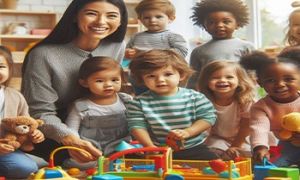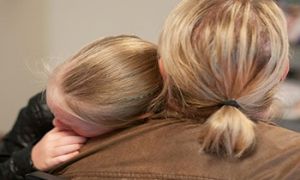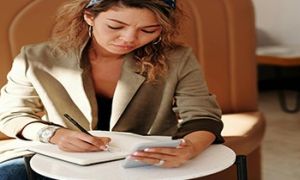Within the Early Years Learning Framework, there are three basic concepts that children’s lives are characterized by. They are Belonging, Being and Becoming.
This refers to how a child from even before birth is linked to family, community, culture and place. Through these relationships, a child’s development and learning take place as they begin to explore, develop interests, create their own identity and make meaning to the world around them. The three concepts, Belonging, Being & Becoming, represent life and living and are constantly referred to throughout the EYLF.
Belonging
"Experiencing belonging - knowing where and with whom you belong is integral to human existence".
To understand that you are part of a group, feeling that you are part of a family. Having a feeling that you are linked with others and experience important relationships. A child’s sense of belonging can be referred to their relationships with family members – recognizing mum, dad, siblings, grandparents etc. Within early childhood, a child’s sense of belonging can relate to how comfortable a child is within the setting, having a sense of trust and security with childcare professionals. When a child has a sense of belonging they are more confident, feel more secure, be more creative and more likely to explore the world of learning.
For example: “You belong in your house with your family” - Dong
Strategies to include Belonging:
- Being respectful and accepting of diversity
- Showing mutual respect
- Have knowledge of families within the centre
- Provide positive and caring relationships
- Engage and interact with children
- Making families feel welcomed
- Appreciating children for their individuality
- Create meaningful learning within the environment
- Meet each individual child’s needs
- Provide a sense of security
Being
"Childhood is a time to be, to seek and make meaning of the world"
To experience what is happening now, life in the present. For children, understanding that they are accepted for who they are and knowing that others care about them. Within early childhood, a child’s sense of being can relate to how childcare professionals show respect to each individual child, through greetings, conversations and actions. When a child has a sense of being they build and maintain relationships with others, take part in life’s journey and face challenges in everyday life.
For example: “If you want to be a mermaid you can imagine” – Jazmine
Strategies to include Being:
- Appreciating skills
- Providing opportunities for children to explore and learn
- Extending on children’s interests
- Embracing culture
- Supporting individual children
- Having respectful relationships with children and families
- Understanding children uniqueness and individuality
- Recognizing each child’s values and skills
- Allowing children to express themselves
- Celebrating children’s achievements
Becoming
"Becoming emphasises learning to participate fully and actively in society".
To experience change through different events and circumstances in one’s life. A child’s sense of becoming refers to the changes they experience as they grow, learn and develop. Within early childhood, a child’s sense of being changes over time as they gain knowledge, extend their understandings, create relationships and develop skills. This enables a child to learn to participate actively in today’s society.
For example: “When you keep planting plants you become a gardener” – Olivia
Strategies to include Becoming:
- Implementing school readiness
- Encouraging independence
- Focusing on the child’s positives
- Enabling children to be confident
- Reflecting on individual growth
- Aspiring others
- Acknowledging self
- Maintaining and developing relationships
- Building foundations for learning
- Expanding on skills
As children participate in everyday life, they develop interests and construct their own identities and understandings of the world.
References:
Understanding EYLF, Aussie Childcare Network
Educators Guide To The Early Years Learning Framework


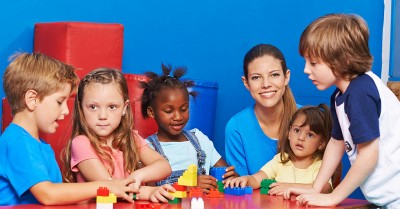
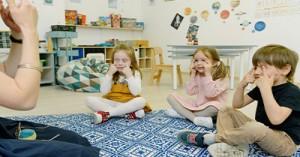

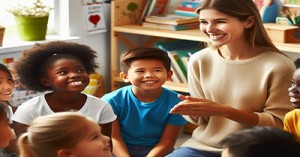
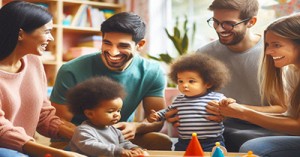
 Here is the list of the EYLF Learning Outcomes that you can use as a guide or reference for your documentation and planning. The EYLF
Here is the list of the EYLF Learning Outcomes that you can use as a guide or reference for your documentation and planning. The EYLF The EYLF is a guide which consists of Principles, Practices and 5 main Learning Outcomes along with each of their sub outcomes, based on identity,
The EYLF is a guide which consists of Principles, Practices and 5 main Learning Outcomes along with each of their sub outcomes, based on identity, This is a guide on How to Write a Learning Story. It provides information on What Is A Learning Story, Writing A Learning Story, Sample
This is a guide on How to Write a Learning Story. It provides information on What Is A Learning Story, Writing A Learning Story, Sample One of the most important types of documentation methods that educators needs to be familiar with are “observations”. Observations are crucial for all early childhood
One of the most important types of documentation methods that educators needs to be familiar with are “observations”. Observations are crucial for all early childhood To support children achieve learning outcomes from the EYLF Framework, the following list gives educators examples of how to promote children's learning in each individual
To support children achieve learning outcomes from the EYLF Framework, the following list gives educators examples of how to promote children's learning in each individual Reflective practice is learning from everyday situations and issues and concerns that arise which form part of our daily routine while working in an early
Reflective practice is learning from everyday situations and issues and concerns that arise which form part of our daily routine while working in an early Within Australia, Programming and Planning is reflected and supported by the Early Years Learning Framework. Educators within early childhood settings, use the EYLF to guide
Within Australia, Programming and Planning is reflected and supported by the Early Years Learning Framework. Educators within early childhood settings, use the EYLF to guide When observing children, it's important that we use a range of different observation methods from running records, learning stories to photographs and work samples. Using
When observing children, it's important that we use a range of different observation methods from running records, learning stories to photographs and work samples. Using This is a guide for educators on what to observe under each sub learning outcome from the EYLF Framework, when a child is engaged in
This is a guide for educators on what to observe under each sub learning outcome from the EYLF Framework, when a child is engaged in The Early Years Learning Framework describes the curriculum as “all the interactions, experiences, activities, routines and events, planned and unplanned, that occur in an environment
The Early Years Learning Framework describes the curriculum as “all the interactions, experiences, activities, routines and events, planned and unplanned, that occur in an environment